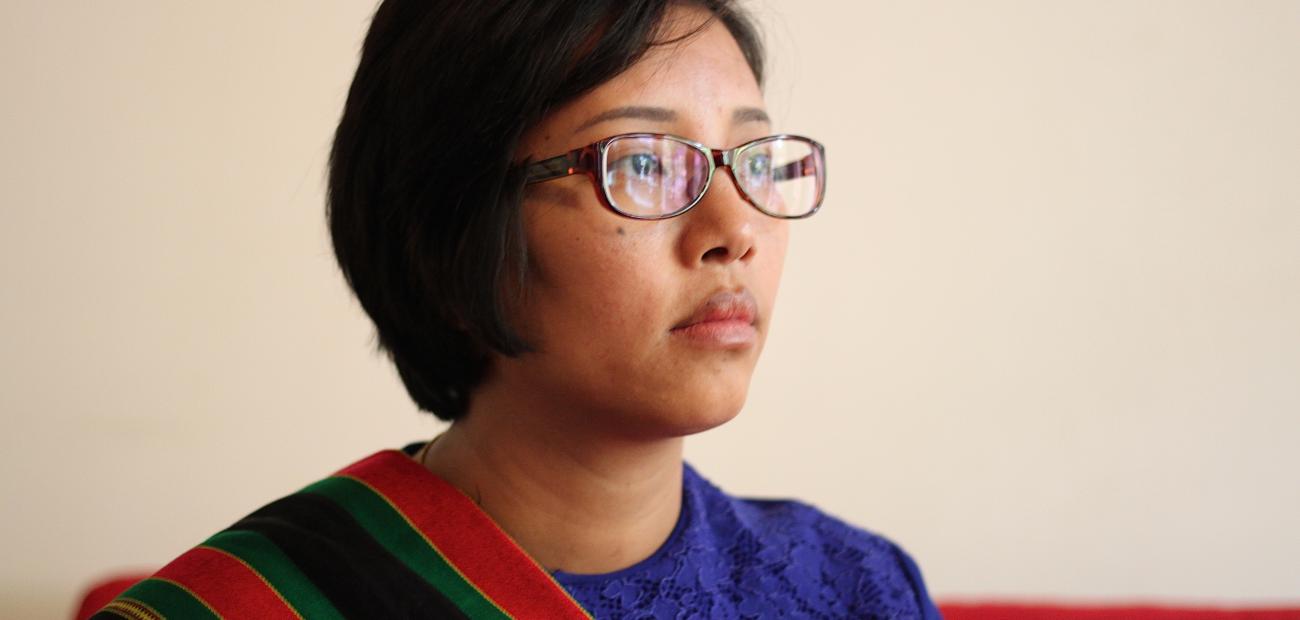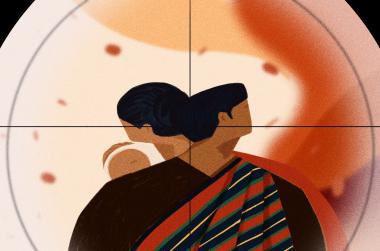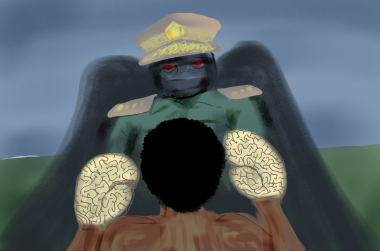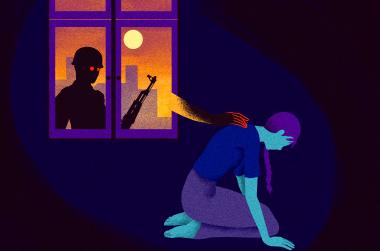It was 1999 and Cheery Zahau - an outspoken teenager who had been warned by her teachers she was “on the doorstep of prison” - was making a break for the border to escape life under Myanmar’s suffocating military rule.
She travelled for days by jeep, grinding over the crumbling roads that are hacked into Chin State’s precarious mountainsides. When the vehicle was commandeered by the army at a remote checkpoint, she was forced to continue the journey on foot with an older woman from her village.
The pair arrived at the Indian frontier two days later, their feet swollen after the arduous trek.
They were immediately confronted by military immigration officers, who confiscated their documents.
“They said: ‘Come back at night to take your identity card’,” says Zahau, recalling the fraught journey that set her on the path to becoming one of Myanmar’s most prominent women’s rights campaigners.
“I was very naive, I told the other woman, ‘We should go back and take our ID cards.’ She said, ‘No no no.’”
The older woman was terrified and insisted they hide at a nearby encampment on the Indian side of the border, assuming it was safer among the temporary tents that clung grimly to the bleak hillside.
“But the army came to the side where we hid. We could hear them: ‘We are looking for two girls. We have their identity cards’. And the other woman was so afraid, she said: ‘Quiet. Quiet. We should not let them see us.’
“I had no idea why she was so afraid,” she says, incredulous that her younger self had not fully appreciated the danger they were in.
The women were able to evade the soldiers and continued their journey before dawn.
But it was not until several years later that Zahau truly understood her companion’s fear.
“The first time I met rape survivors was in 2003,” she says.
By this time she was working as a refugee rights campaigner for the Women’s League of Chinland in the eastern Indian state of Mizoram.
Two Chin women came to her office with harrowing stories of attacks by Myanmar soldiers.
“It was so shocking for me and the three of us were literally shaking and crying. They had just escaped and I was the first one they talked to, and I was still very young,” she says.
Their accounts were just the beginning.
Energetic and articulate, Zahau speaks passionately as the memories pour out.
“After that people kept coming and complaining about rape, sexual violence, and only then I realised ‘Oh my god, the army can really rape women’,” she says.
Most women who had been attacked said the assault happened after they were stopped at checkpoints by the military - and this shone a new light on her companion’s terror years before as they hid from soldiers at the border.
“That night if I was not with a ‘big sister’ then something really bad could have happened to me, or to us,” says Zahau, who heard so many of these stories that she launched a research project into the issue.
It would see her labelled an enemy of the state in Myanmar.
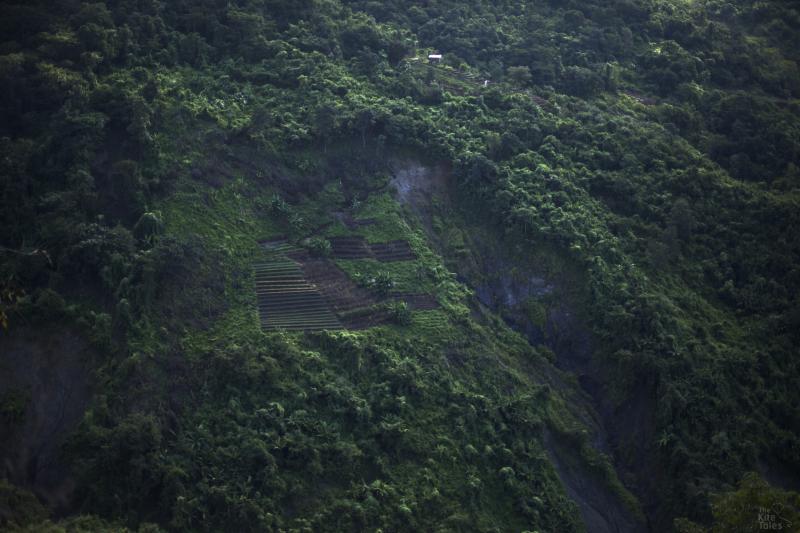
Zahau grew up in a rural village at the foot of the majestic mountains that form the lofty fortress of Chin State. And she saw enough of Myanmar’s army during her childhood to distrust the organisation known as the Tatmadaw, which had ruled the country since a 1962 coup.
“My grandfather was a village headman, so that’s how I grew up with the memory of how bad the military was, because they always came to our house and asked for food, asked for tax,” she says, recalling how he would negotiate with the soldiers, bartering down a demand for 50,000 kyats (around $50) to a payment of 10,000 kyats.
“As a very young child, I remember that. And then, so funny, my grandmom, whenever she hears that the soldiers are coming, she will hide all her chickens because they’re gonna eat them,” she laughs, recalling the memory of her grandmother shooing away the birds with warnings of army appetites. But her smile quickly fades.
“I think our generation has grown up with very dark memories.
“When I was like eleven, I came back, and all the males - even from my family, my uncles, everybody - was gone. I was like ‘Why are only the women left in the village? Where are the men and boys?’” she says.
They had been taken by the military for forced labour.

Zahau’s father was a teacher, but he left for India when she was a child because of his political activities and the need to earn more money than in Chin, one of the poorest areas in a country left economically devastated under the junta. She remained in Myanmar initially to continue her schooling, staying with relatives for a while and then boarding.
“During high school — because we had seen the military behaviour, oppression in the village — I asked a lot of questions,” she says.
This did not endear Zahau to her teachers, in a school system that favours placid compliance over spirited enquiry.
It did not help that the syllabus was designed to reinforce nationalist stereotypes that portray the Bamar majority as a big brother, benignly struggling to unify wayward ethnic minority siblings.
“We never get to learn about Chin. There is no record of who we are. We are not a part of that country, we are alien. And if we do learn, it’s the negative connotation,” she explains.
“I remember in geography, one text says: 'Chin State is the least developed and the most backward. People don’t know how to dress.'”
She says this inflicted a sense of “inferiority”.
“Backward was very strong language in Burmese. And the Shans were opium farmers, so they’re bad. And Kachins and Karens are rebels, they want to destroy the union. That’s the message that they give to young kids. It’s just so unfair.”
Most historical teaching focused on the exploits and achievements of Bamar kings, particularly those whose blood-seeped reigns were characterised by the kind of violent suppression that could be co-opted into the junta’s narrative of its contemporary exploits.
“How they conquered. How they killed. How they massacred people. The violent circle,” Zahau says.
“So it’s okay for the Tatmadaw to be violent because that’s how they built the nation. It’s terrible. There is literature, good history of the rising of the culture. That’s fine, but a lot of stuff in the text books are violent stories.
“And it is reflected today. Automatically they think you have to crush your enemy. I was not happy with those lessons.”
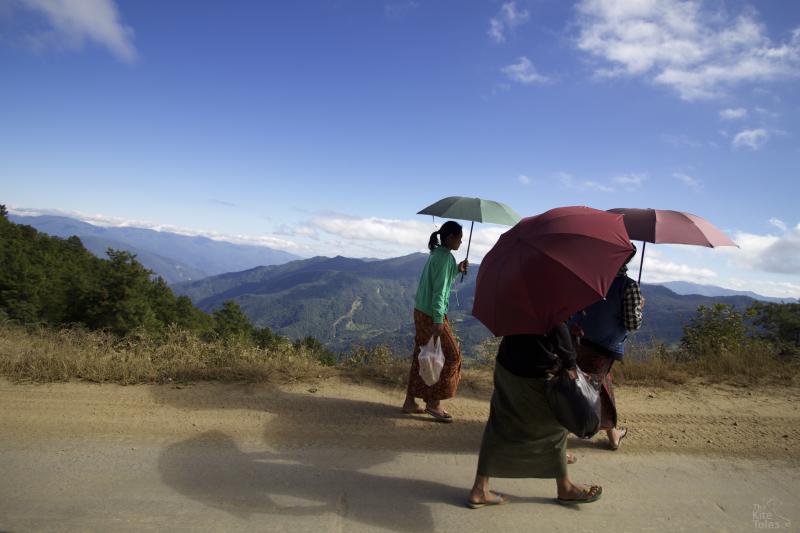
After missing out on the scores needed to get into engineering - she would have easily passed if she was a boy, but girls are required to get higher marks in the Myanmar system - she left for India.
There schooling was in English and she carried a dictionary everywhere to try and master the unfamiliar language.
Despite the shared religious and cultural heritage between the local Mizo people and the Chin newcomers, the large number of refugees spilling out of Myanmar stoked resentments.
Zahau felt this first in the schoolroom - “they always call me Nga Pi, smell of fish” - and in 2003 this animosity erupted, forcing some 20,000 people to flee back to Chin state.
“A lot of Chin women and children came to our office, they didn’t know where to go. Some had had problems with the army like escaping from forced labour or being tortured. They did not want to go back,” she says.
Local media accused impoverished Chin refugees of a range of social problems including drug smuggling.
“In every section in the city the loud speaker announced: ‘No Chin. No more Chin in the section. If we find you, you’re responsible for your own life’,” says Zahau, who went into hiding for four months.
While those attitudes have since softened, Zahau likens the situation at the time to the deep animosity in Myanmar to Rohingya Muslims in Rakhine state, saying people had a “very narrow nationalistic view”. *
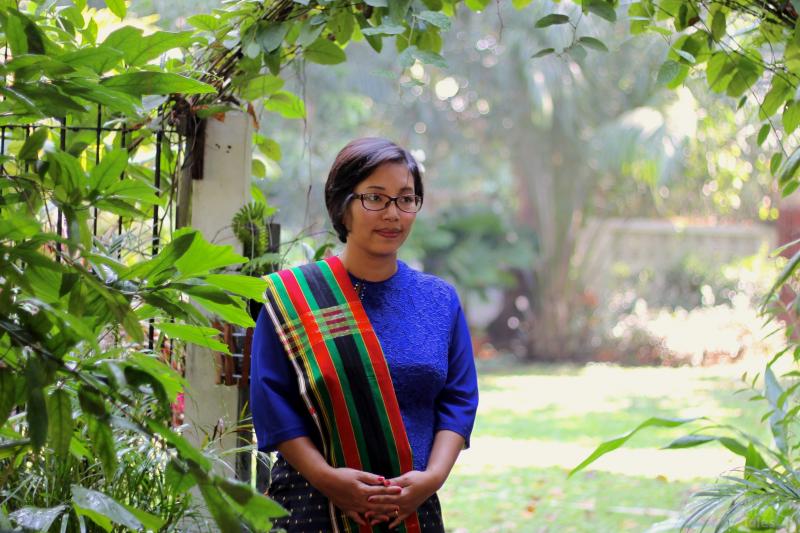
In Chin, the abuses continued. Zahau’s organisation decided to embark on the near-impossible task of documenting military rape in the region in 2006.
Researchers risked their freedom, even their lives, to sneak across the border and travel on foot from village to village.
“I was so worried for my colleagues that if they got arrested with their notebook or recorder then they’re gone. Their life is finished. So it was very difficult. And when I typed it out and edited the whole story, I also got very very depressed,” she says.
The report, released in 2007, was widely covered by the media in India and even rattled the Myanmar junta.
An article in the state mouthpiece New Light of Myanmar singled out Zahau, accusing her of “trying to destroy the unity of Myanmar”, she says.
Traumatised by the stories she had documented and under increasing pressure in India for her outspokenness, Zahau moved to Thailand, where she studied and worked for several Myanmar exile organisations.
Without documents, she was forced to travel - like most other Chin refugees in a similar position - on a fake passport.
“Fake names and fake IDs, and they were very common,” she explains.
Zahau was finally able to return to Myanmar in 2012 as the country opened up and launched herself into projects inside the country.
While the threat of sexual violence by the army has reduced in recent years for Chin women, Zahau says the abuse has simply moved on to other areas where soldiers are concentrated.
“With heavy militarisation women are not safe at all,” she says.
“It’s really hard sort of to dig into the mindset of the military because it’s such a closed organisation, but the perception is they just have very little respect for ordinary civilian communities, particularly the border regions.”
And women from poor and marginalised communities continue to face threats.
“I think the challenge is the Tatmadaw continuing these practices, and this mindset that rape is a weapon of war - or that any abuse is a tool for them to show their power to control - it’s the biggest challenge.”
But she says women certainly have greater freedom to express themselves - especially those from privileged and Bamar backgrounds like Myanmar’s democracy campaigner turned leader Aung San Suu Kyi.
Quick to laugh and brimming with enthusiasm as she talks about the inspiring work of rights groups in Myanmar, Zahau remains determined to improve the lives of marginalised women across the country.
And as society changes, she is heartened to see more and more confident women taking on greater roles in society.
“Women have become more assertive. I think we are on the right track.”
Interviewed December 2016
* We spoke with Zahau before the latest round of violence in Rakhine that forced hundreds of thousands of Rohingya to flee to Bangladesh.

